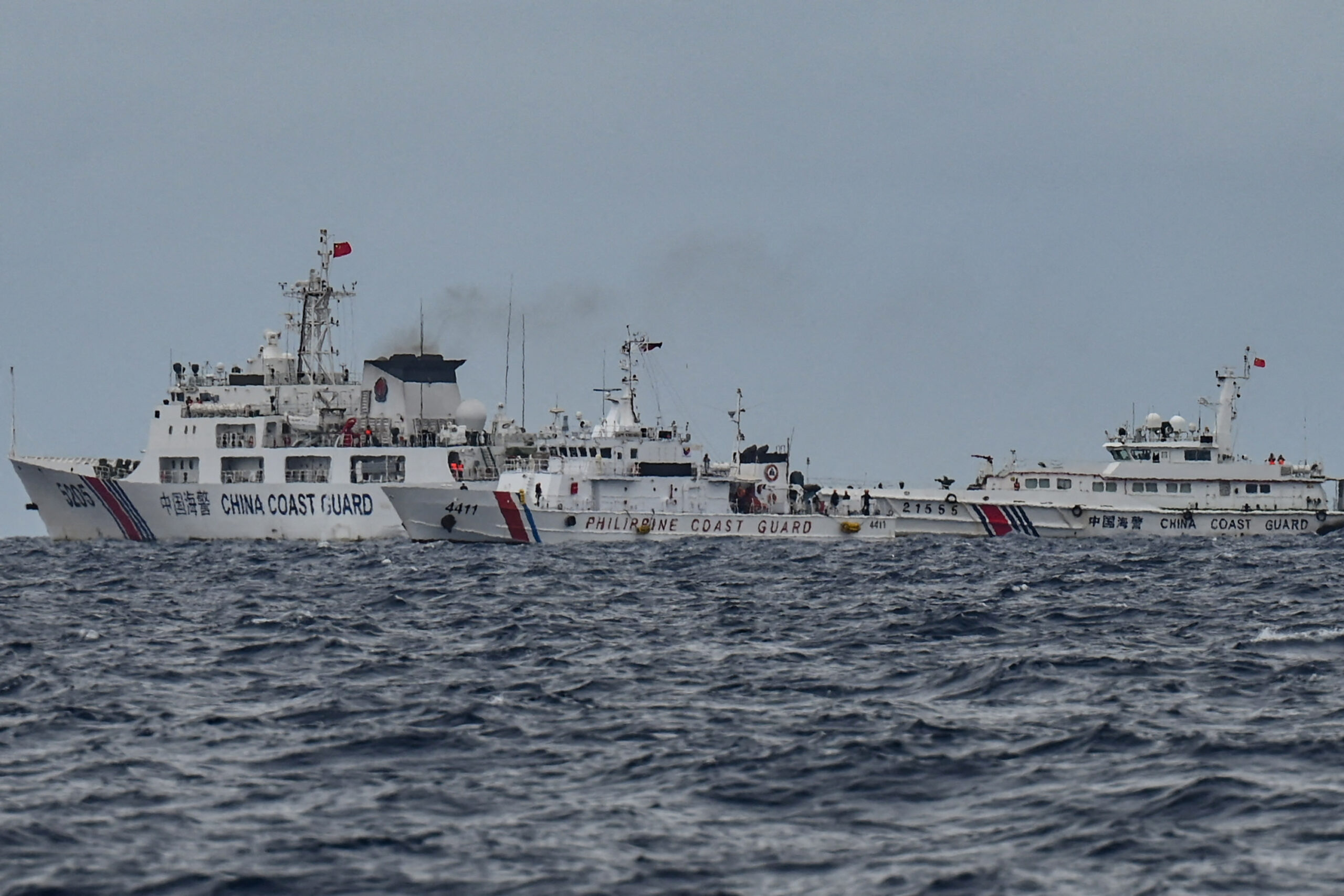More Asean nations offer help on South China Sea issue

China Coast Guard ships (background L and R) are seen past the Philippine Coast Guard ship BRP Cape Engano (C), as photographed from the BRP Cabra during a supply mission to Sabina Shoal in disputed waters of the South China Sea on August 26, 2024. – Sailors aboard two Philippine Coast Guard vessels crashed through South China Sea waves trying to bring food and other supplies to colleagues holed up inside a remote ring of reefs, as Chinese ships shadowed them. (Photo by JAM STA ROSA / AFP)
VIENTIANE, LAOS — President Ferdinand Marcos Jr. said on Friday “more than half” of the 10-member Association of Southeast Asian Nations (Asean) offered some form of help to the Philippines amid China’s continued aggressions over the South China Sea.
Wrapping up his four-day trip to meet other world leaders in the capital city of Laos, Marcos said these offers included possibilities of joint exercises and continued discussions on how to keep the peace over the hotly disputed South China Sea, which other Asean members also have overlapping claims. He refused to give other specifics.
He added these offers cropped up during bilateral meetings on the sidelines of the 44th and 45th Asean summit held here from Oct. 8 to Oct. 11. Officially, he had bilateral meetings with Vietnam, New Zealand and Canada.
“Much of the work that gets done here is actually on the sidelines where you talk to one leader or a group [over] a cup of coffee,” Mr. Marcos said in an interview with reporters shortly before departing Laos on Oct. 11.
“For the most part, our neighbors and all interested parties, which include the European Union, certainly the United States, have all come to talk to us and say there is much that we can still do, or say let’s explore this and that,” he said.
Throughout the summit, Marcos consistently challenged China and the 10-member bloc to be more proactive and not to be silent about the violations in the South China Sea.
More than frustrated
“We take every opportunity that we can to make the Philippine position clear. Our intent [is] to manage the situation … so that there is no conflict, it does not erupt into a hotter confrontation,” he said.
Marcos delivered one of his strongest calls to action at the East Asia Summit when he urged the bloc to “seriously manage differences and reduce tensions in the South China Sea.”
Marcos admitted he was “more than frustrated” by the mismatch between China’s supposed commitment to regional stability and its continuing bullying in the West Philippine Sea.
“Frustration is more than an understatement,” Marcos said. “There’s potential danger involved. That’s something we want to avoid.”
Mr. Marcos said the Philippine strategy for now is to keep a presence over the West Philippine Sea “whatever happens … because it is important to show to the world and our people that we are in the business of protecting our sovereignty.”
So far, only the Philippines and Vietnam have maintained clear positions on China’s aggressions in the South China Sea.


















